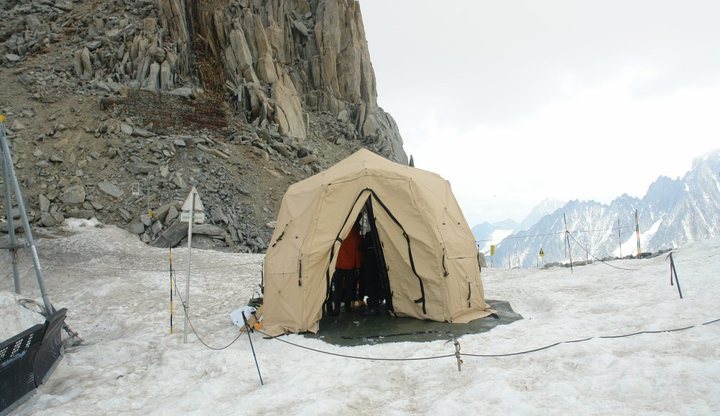Xtreme Alps paper looks at benefits of dietary nitrate at high altitude
It has been known for years that nitric oxide (NO) production is plays a huge role in helping in conferring tolerance to hypoxia, and our studies have shown that Tibetan highlanders such as the Sherpa community have higher nitrate and exhaled NO (ENO) than native lowlanders, With this in mind the team were keen to see if nitrate supplements that have show to reduce the oxygen cost of exercise in normoxia (normal levels of oxygen), would be of benefit at high altitudes.
Entitled Effect of dietary nitrate on respiratory physiology at high altitude - Results from the Xtreme Alps study the paper investigates how dietary nitrate supplementation affects physiological responses to hypoxia.
For the study the team recruited 28 healthy adult participants who stayed at 4559m for a week, with 14 being given a beetroot-based high nitrate supplement and the other 14 receiving a low-nitrate placebo. As well as the supplements, the participants had their ENO, vital signs and acute mountain sickness (AMS) severity were recorded at sea level (SL) and daily at altitude.
It was found that dietary nitrate supplements are well tolerated at altitude, and do increase pulmonary NO availability.
To read the paper in full, visit Science Direct.
Share this :





